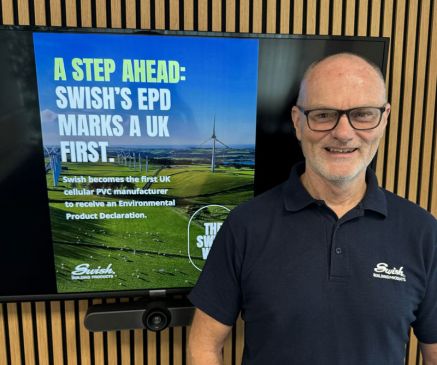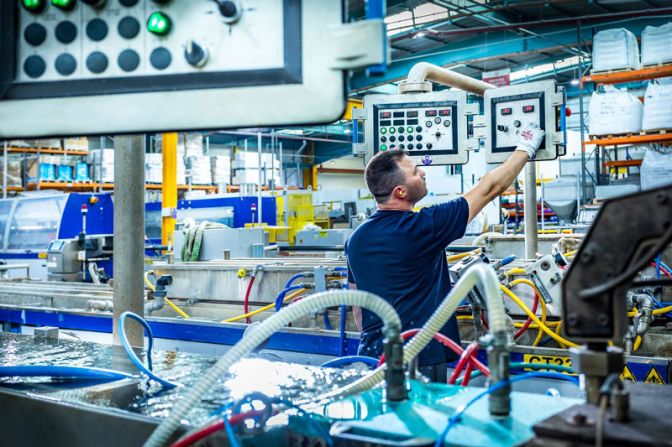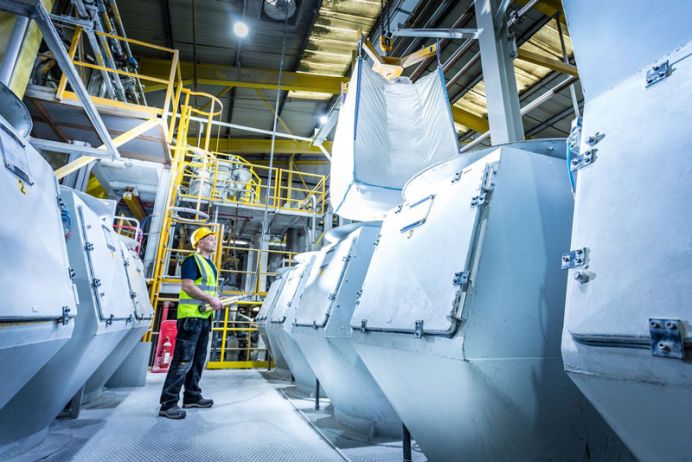Q&A with Dave Osborne, Technical Manager at Swish Building Products
July 28, 2025 at 10:01 AM
 Exploring EPDs: What they mean for manufacturers and their customers
Exploring EPDs: What they mean for manufacturers and their customers
Working towards a net-zero future is a priority for many industries and the businesses within those sectors. A step towards this is the introduction of Environmental Product Declarations (EPDs). But what are EPDs? How will they help businesses achieve their sustainability goals? And why should manufacturers care? We caught up with Dave Osborne, Technical Manager at Swish Building Products, to find answers to these questions, as well as discuss the wider implications of EPDs.
Firstly, what is an EPD?
An Environmental Product Declaration (EPD) is a standardised, transparent document that communicates the environmental impact of a product or material throughout its entire life cycle. It provides a comprehensive assessment of a product's environmental footprint, allowing for informed decision-making and promoting sustainable practices.
At its heart, an EPD is based on a thorough Life Cycle Assessment (LCA), which analyses the environmental effects of a product throughout its life cycle. These assessments are defined by three options:
Cradle to Gate
This considers all aspects of a product from raw materials (including extraction, refinement, and delivery), and the energy and resources required to process the finished article before it’s despatched from the manufacturing plant.
Cradle to gate with options
This takes the above and expands on the delivery and use of a product, including pre-processing, secondary energy and resource use during the installation phase, potential maintenance and replacement cycles, and final disposal where known.
Cradle to grave
This holistic approach considers the complete end to end process, including fully managed recycling options at the end of a product’s ‘service life’.
 The key output is the Global Warming Potential (GWP) which defines the embodied CO² equivalent/kg of product. In the case of Swish, which holds EPDs for cellular profiles and rainwater products these are reported as: Cellular PVC = 2.26 kg CO² eq/kg of product and Rainwater = 1.71 kg CO² eq/kg of product.
The key output is the Global Warming Potential (GWP) which defines the embodied CO² equivalent/kg of product. In the case of Swish, which holds EPDs for cellular profiles and rainwater products these are reported as: Cellular PVC = 2.26 kg CO² eq/kg of product and Rainwater = 1.71 kg CO² eq/kg of product.
EPDs are developed in accordance with International Standards (ISO 14025 and EN 15804) and are fully verified by an independent third party to ensure credibility of the data. This ensures they provide an impartial way to compare the environmental performance of different products within the same category.
The aim? To help manufacturers, designers, and consumers understand the environmental impact of a product, from raw material extraction to end-of-life management.
Once created, EPDs impact multiple domains including building design and construction, product development and manufacturing, as well as public procurement and marketing strategies.
What do EPDs mean to housebuilders?
It is clear major developers are keen to align themselves with government requirements for carbon reduction and other quantitative sustainability initiatives. For example, Barratt Developments PLC states it “is determined to be the leading sustainable national housebuilder. A preference will be given to materials that: have a recycled content; have low embodied carbon as demonstrated via the BRE Green Guide to Specification or other appropriate method such as an Environmental Product Declaration (EPD).”
Likewise, Bellway is adopting a sustainable approach to its business practices. The ‘Better with Bellway’ strategy states the company ‘must operate an environmental policy; its supply chain must aim to deliver a material reduction in single-use plastic packaging and remove unnecessary plastic packaging where possible; its supply chain must aim to include recycled content in products where possible; and to provide Environmental Product Declarations (EPD’s) for their products.’
Evaluating supplier EPDs will help housebuilders to increase the procurement of lower carbon materials, which together with adopting more rigorous design processes, better quality control, and reducing waste, will further aid a reduction in the embodied carbon level of new homes.
How important are EPDs to the wider construction sector?
Similar to the housebuilding industry, as the construction sector works towards achieving a net-zero carbon future, the sustainability and environmental impact of a product is extremely important. This is where EPDs come into their own.
Manufacturers who can report their products’ GWP via a verified EPD make choosing the most sustainable and environmentally preferred product simple and straight forward.
Why should EPDs matter to manufacturers?
There is currently no obligation for manufacturers to provide EPDs. However, here at Swish we believe we have a responsibility to provide customers with factual, independently verified information about the environmental impact of the co-extruded cellular and rainwater products we manufacture.
Quite simply, an EPD signals to your stakeholders that your company is committed to transparency and environmental responsibility. This not only enhances your brand's credibility but also sets you apart from competitors who may not have the same level of verified environmental data.
 How will EPDs be utilised by the wider industry in the future?
How will EPDs be utilised by the wider industry in the future?
As the market shifts towards greater environmental accountability, having an EPD prepares your business for future regulatory changes and market demands. This proactive approach ensures long-term competitiveness and resilience.
As the first UK cellular manufacturer to hold an EPD, we are leading the way in terms of sustainability and environmental responsibility. It demonstrates that we are listening to our customers, following government and industry developments, and supporting with our innovative, industry-leading approach.
We believe that EPDs, together with other initiatives such as increasing operational efficiency and the use of post-consumer waste – elements Swish has been working on for many years – will play an important role on our journey towards net-zero, and here at Swish we will continue to work hard to support the wider industry as we all strive towards a more sustainable future.